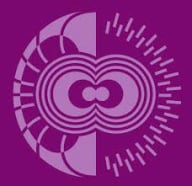Plasma Organizations
IPL members participate in some of the various initiatives below aimed at promoting plasma STEM, formal and informal plasma education, and plasma applications to society.

Strategic Plasma Innovation Network (SPI-NET)
To form and support a consortium of institutions that engage in fundamental plasma science research with a focus on processes that lead to self-organization and pattern formation in plasmas and a goal to grow the plasma science workforce. SPI-NET provides access to the Auburn University Magnetized Plasma Research Laboratory (MPRL), supporting both emerging and established plasma research programs while fostering collaboration across partner institutions. The network offers a streamlined project assessment and approval process, technical and travel support for selected studies, and computational/theoretical resources—including open-source codes for dusty plasmas and non-extensive statistics. It also includes a hands-on plasma science and engineering winter school for undergraduates beginning in 2026–2027, with more details available in the SPI-NET brochure.
Learn More
Learn More
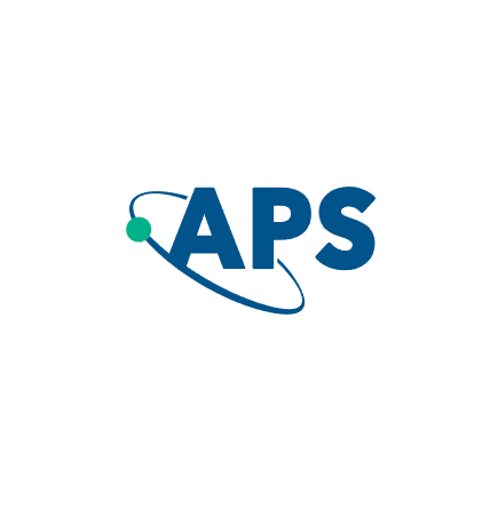
American Physical Society (APS) Division of Plasma Physics (DPP) Education and Outreach Committee
The American Physical Society (APS) Division of Plasma Physics (DPP) Education and Outreach Committee is dedicated to promoting plasma physics education and public engagement through various initiatives. These include organizing annual events such as Science Teachers Day, the Plasma Sciences Expo, and a Graduate School and Careers Fair, as well as coordinating education-focused activities during the annual DPP meeting. The committee aims to advance knowledge about plasmas, inspire students, provide resources for teachers, and communicate the excitement of plasma research to the general public, relying on the support of federal funding agencies and the commitment of DPP member scientists. There mission is also furthered through APS Committee on the Status of Women in Physics, APS PhysicsQuest, APS Science Trust, and APS Joint Network for Informal Physics Education and Research (JNIPER).
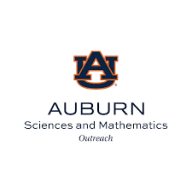
Auburn University College of Science and Math (COSAM) Outreach
The College of Sciences and Mathematics (COSAM) Outreach at Auburn University is dedicated to promoting scientific and mathematical literacy among K-12 students, teachers, and communities in the region, state, and nation. COSAM Outreach engages participants in inspiring hands-on experiences, providing access to laboratory activities, enthusiastic mentors, and a supportive environment that encourages intellectual development. The program organizes various events throughout the year, including Science Olympiads, the Alabama Science and Engineering Fair, and Mathematical Puzzle Programs, which offer volunteer opportunities for COSAM undergraduate and graduate students. COSAM Outreach aims to motivate students to reach their full potential in STEM fields while also supporting Auburn University's land-grant mission through extensive outreach and service efforts.
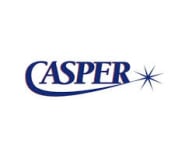
Baylor University Center for Astrophysics Space Physics and Engineering Research (CASPER)
The Center for Astrophysics, Space Physics, and Engineering Research (CASPER) at Baylor University is a multidisciplinary research center comprising five independent groups in theoretical and experimental physics and two educational outreach groups. CASPER conducts cutting-edge research in areas such as dusty plasmas, CubeSats, gravitational wave astronomy, and quantum cosmology, supported by sponsors like NASA and the National Science Foundation. It also emphasizes education and outreach through programs like the High School Scholars Program and NSF Summer Research Experiences for Teachers, providing hands-on training and curriculum development opportunities. Located within the Baylor Research and Innovation Collaborative (BRIC), CASPER features state-of-the-art facilities and exhibits designed to spark interest in STEM among students and the broader community.
Learn More

Coalition for Plasma Science
The Coalition for Plasma Science (CPS) is a non-profit organization established in 1997 to increase public awareness and understanding of plasma science and its diverse applications. CPS promotes plasma-focused education through resources for K-12 teachers, hands-on demonstrations at events like the Plasma Science Expo, and initiatives such as the Plasma Science Prize at the Intel International Science and Engineering Fair. It also engages policymakers, educators, and the media through workshops, publications, and advocacy efforts to highlight plasma's societal importance and technological potential. CPS unites the plasma research community behind a common message while supporting workforce development in plasma-related fields through collaborations with universities, industry, and national labs.
Learn More
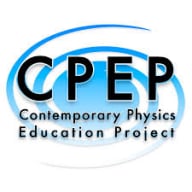
Contemporary Physics Education Project (CPPEP)
The Contemporary Physics Education Project (CPEP) is a non-profit organization formed in 1987, comprising leading physicists, teachers, and educators dedicated to promoting contemporary physics education. CPEP creates and distributes colorful, inspirational charts and posters covering various physics sub-fields, including fundamental particles, plasma physics, fusion, nuclear science, cosmology, and gravitation. The organization has developed five main charts, distributed nearly half a million educational materials, and offers online resources to support teaching for each chart topic. CPEP's efforts have gained worldwide recognition, earning the 2017 Excellence in Physics Education Award from the American Physical Society for its 25-year commitment to providing educational materials on contemporary physics topics to students.
Learn More

Michigan Institute for Plasma Science and Engineering (MIPSE)
The Michigan Institute for Plasma Science and Engineering (MIPSE) is a collaborative initiative sponsored by the University of Michigan that brings together plasma researchers from various Michigan universities to investigate fundamental plasma phenomena and develop society-benefiting technologies. MIPSE supports graduate and undergraduate research through internships and degree programs, provides seed funding for new areas of plasma-related science and engineering, and fosters interdisciplinary research. The institute serves as a hub for connecting with industry, sponsoring visitors and seminars, and conducting community outreach to promote plasma science and its applications. MIPSE's research spans a wide range of plasma applications, including medicine, manufacturing, microelectronics, green technologies, and space exploration, contributing to advancements in fields as diverse as information technology and interplanetary space travel.
Learn More

Fusion Power Associates
Fusion Power Associates (FPA) is a non-profit, tax-exempt research and educational foundation dedicated to advancing fusion energy development and promoting its societal benefits. The organization provides timely information on fusion science and technology through newsletters, technical symposia, and educational materials for students, media, and the public. FPA also recognizes excellence in the field by presenting annual awards for leadership, distinguished careers, and achievements in fusion engineering. Additionally, it fosters collaboration among government, academia, industry, and national laboratories to accelerate the transition from fusion research to practical applications.
Learn More

Fusion Industry Association
The Fusion Industry Association (FIA) is a non-profit trade association founded in 2018 to advocate for and accelerate the development of commercial fusion energy. With 28 members and 35 affiliate members as of 2025, the FIA represents private fusion companies, suppliers, academic institutions, and professional services working towards making fusion power a reality. The organization focuses on partnering with governments, ensuring regulatory certainty, and building a global fusion energy industry through advocacy, education, and policy initiatives. As of July 2024, the fusion industry has attracted over $7.1 billion in investment, with the FIA playing a crucial role in promoting public-private partnerships and supporting efforts to bring clean, safe, and sustainable fusion power to the world within the next decade.
Learn More
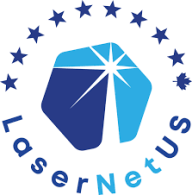
LaserNetUS
LaserNetUS is a consortium of 13 high-power laser facilities across North America, funded by the U.S. Department of Energy's Office of Science Fusion Energy Sciences program to advance laser science and applications. The network provides researchers, including students and scientists, with access to state-of-the-art laser facilities, enabling cutting-edge experiments in fields such as astrophysics, inertial fusion energy, and materials science. As of March 2025, LaserNetUS has 1567 users, has facilitated over 140 experiments, and has contributed to 58 publications, demonstrating its significant impact on the scientific community. The initiative not only drives innovation in laser research but also fosters collaboration among institutions, supports workforce development, and plays a crucial role in advancing inertial fusion energy and discovery plasma science.
Learn More
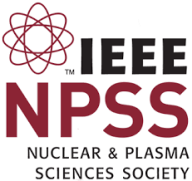
Institute of Electrical and Electronics Engineers (IEEE) Nuclear and Plasma Sciences Society (NPSS)
The IEEE Nuclear and Plasma Sciences Society (NPSS) is a transnational organization of about 3,000 professional engineers and scientists dedicated to advancing the theory and practice of nuclear and plasma sciences and related emerging technologies. NPSS comprises eight technical areas, including fusion technology, nuclear medical imaging, particle accelerator science, and plasma science applications, with a common focus on electromagnetic radiation in its various forms. The society organizes numerous conferences and workshops worldwide, publishes four transactions journals, and supports the development of its members through awards, educational initiatives, and networking opportunities. Founded in 1949 as the Professional Group on Nuclear Science, NPSS has evolved over 75 years to become a leading professional organization in its field, contributing significantly to technological advancements in areas such as healthcare, data handling, and semiconductor development.
Learn More

MagNetUS
MagNetUS is a nationwide ecosystem for magnetized plasma research, established to broaden participation, foster collaboration, and support education in the field. The network connects researchers, experimental facilities, and computational resources across various plasma-related disciplines, including fusion, space physics, and astrophysics. MagNetUS organizes annual meetings, coordinates facility access through a peer-reviewed proposal process, and has established working groups focused on areas such as outreach, software development, and facility coordination. As of March 2025, MagNetUS has held four annual meetings, facilitated numerous experiments, and continues to grow its impact on the plasma science community by promoting interdisciplinary research and developing the next generation of plasma scientists.
Learn More

PlasmaPy Project
The PlasmaPy Project is an initiative to develop an open-source software ecosystem for plasma research and education, with the core package aiming to provide functionality commonly used across plasma physics disciplines. As of March 2025, PlasmaPy has grown significantly, with contributions from numerous developers and a focus on creating a Python-based framework that includes code, documentation, tests, and educational resources. The project emphasizes best practices in research software engineering, including open development, community-driven features, and the use of automated testing to ensure code quality. PlasmaPy's goals include reducing barriers to entry for newcomers, improving scientific reproducibility, and fostering collaboration across different subfields of plasma physics, potentially benefiting areas such as heliophysics, astrophysics, and materials science.
Learn More
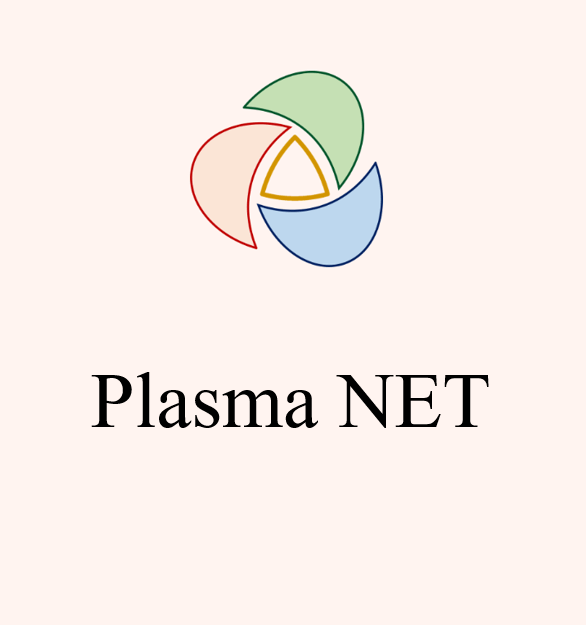
Plasma NET
Plasma NET (Network for Engagement and Training) is an initiative aimed at increasing public literacy in plasma science and improving student involvement in related degrees and employment opportunities. The program provides impact assessment tools for outreach programs, resources for public engagement, and information on incorporating plasma science into K-12 teaching standards. Plasma NET offers a comprehensive list of universities with plasma programs or faculty conducting plasma-related research, as well as deadlines for undergraduate and graduate applications. Additionally, the initiative highlights various employment opportunities in plasma science and engineering, including job listings and internship programs for undergraduate students.
Learn More
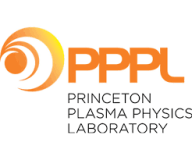
Princeton Plasma Physics Lab, Office of Science Education
The Princeton Plasma Physics Laboratory (PPPL) Office of Science Education offers a comprehensive range of educational programs and outreach initiatives to promote plasma physics and fusion energy science. These include the Research Experience for Undergraduates (REU) program, professional development workshops for K-12 teachers, and the Young Women's Conference aimed at introducing young women to plasma physics careers. PPPL also conducts undergraduate workshops in plasma physics for freshmen and sophomores and provides portable scientific demonstrations and experiments to explain plasma science concepts. The laboratory's educational efforts extend to apprenticeship programs and various outreach activities, all designed to foster interest in plasma physics and support the development of future scientists and engineers in the field.
Learn More
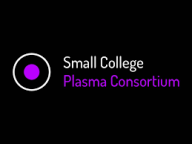
Small College Plasma Consortium
The Small College Plasma Consortium is a coalition of faculty, students, and plasma researchers primarily from teaching colleges, undergraduate institutions, and liberal arts schools. The consortium aims to provide tools, tips, and resources for plasma researchers and students, fostering collaboration and knowledge sharing within the community. It features a forum for community conversations, allowing members to connect and discuss plasma-related topics. The consortium's website serves as a hub for exploring plasma research opportunities and connecting with like-minded individuals in the field of plasma science at smaller educational institutions.
Learn More

STEP UP Physics Together
STEP UP Physics Together is a national community of physics teachers, researchers, and professional societies dedicated to empowering teachers and inspiring young women to pursue physics in college. The initiative offers free research-based lessons and resources, including the "Careers in Physics" and "Women in Physics" lessons, designed to transform physics culture and address gender disparities in the field. STEP UP organizes networking events, workshops, and professional development opportunities, such as the recent regional networking and coding physics simulations event held on March 15, 2025, in New York. As of March 2025, STEP UP has engaged over 1,800 high school physics teachers and continues to expand its impact through advocacy, education, and community-building efforts.
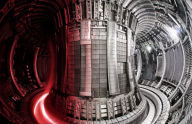
University Fusion Association
The University Fusion Association (UFA) is an organization open to faculty, students, and professional research staff from universities involved in fusion research. UFA aims to ensure continued university participation in fusion research, enhance broad-based support for fusion and plasma physics, and improve communication within the fusion community. The association is governed by an Executive Committee, with officers and members representing various institutions across the United States. UFA plays a crucial role in advocating for university-based fusion research, addressing challenges such as funding reductions and faculty hiring prospects, and developing strategies to maintain a strong academic foundation for the U.S. fusion program.
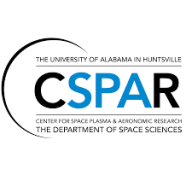
University of Alabama Huntsville, The Center for Space Plasma and Aeronomic Research (CSPAR)
The Center for Space Plasma and Aeronomic Research (CSPAR) at the University of Alabama in Huntsville is a multidisciplinary research center dedicated to studying various aspects of space physics and astrophysics. CSPAR's research encompasses a wide range of topics, including cosmic and terrestrial gamma-ray flashes, solar wind physics, the interstellar medium, and energetic particles[4]. The center provides opportunities for students to engage in cutting-edge research, offering programs such as the Research Experience for Undergraduates (REU) and the International Space Weather Camp (ISWC)[7][3]. CSPAR collaborates with NASA and other institutions, contributing to the development of space science knowledge and preparing students for careers in fields related to space research and exploration[5].
